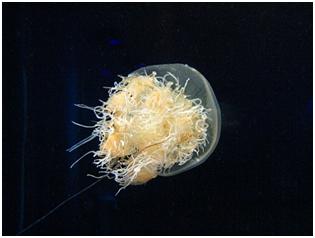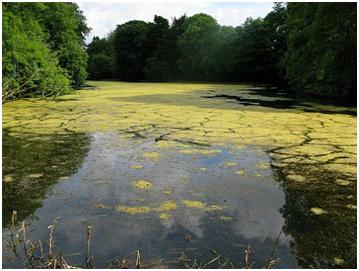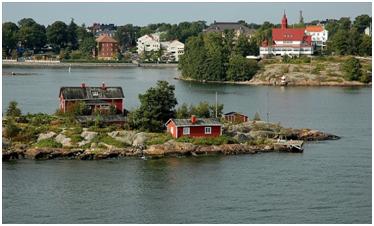 It is amazing to hear from environment protection groups and agencies about some environmental concerns of the world always seem to be center stage and others never even get an honorable mention unless a point is made to feature them. Major issues like climate change, global warming, greenhouse gases and fossil fuels seem to be a few of the first things which forefront when we talk about environment concerns.
It is amazing to hear from environment protection groups and agencies about some environmental concerns of the world always seem to be center stage and others never even get an honorable mention unless a point is made to feature them. Major issues like climate change, global warming, greenhouse gases and fossil fuels seem to be a few of the first things which forefront when we talk about environment concerns.
Some issues concerning the energy of the world including conservation, renewable and non-renewable energy. These are the points of focus on the news, in magazines, on the radio and in schools. But what about the issues that are always getting a backseat, who is it that determines the pecking order among these?
How about the issueof ever-growing genetic engineering planet including genetic pollution and the genetically modified food controversy? Or what about over gazing or intensive farming, slash and burn and pesticide drifts? These are also among the major destructive issues and specifically the ecosystem that is critical to life itself.
Definitely it is the time we teaching the world on all of the environmental issues that need to be dealt if we like to like brotherly with our  fellow human beings. Environmental degradation is another topic with devastating environmental issues, covering eutrophication, habitat destruction and invasive species. Have you ever heard or little bit know to this? May be, but these issues are still over the cover to be discussed with protection agencies.
fellow human beings. Environmental degradation is another topic with devastating environmental issues, covering eutrophication, habitat destruction and invasive species. Have you ever heard or little bit know to this? May be, but these issues are still over the cover to be discussed with protection agencies.
We also need to aware the world about eutrophicationissue more and more. It can be natural or man-made, in the case of raw sewage. In the Greek language eutrophic refers to health and adequate nutrition and development. Hypertrophication is the moving of a mass of water’s tropic status towards increasing biomass, through man-made or natural substances, like phosphates, in numerous fertilizers or sewage waste, into an aquatic realm.
We have heard about the bloom of phytoplankton in the world’s waters and often it that looks to be spiraling out of hand as of late on a global scale. A result of this massive movement is hypoxia, lowering the oxygen levels in the water to dangerous levels and these in turn reduce various animal and fish species, it is devastating if we say less.
On the other hand, some of the Jellyfish species like Japan’s Nomura jellyfish thrive in this limited environment and that negatively  affects the ecosystem balance. This is a huge environmental concern that doesn’t seem to get very much attention and it’s just about time it did.If we don’t step in and start making changes now, today, not tomorrow or whenever we get around to it, we will be sorry. Here are a few ideas to get started:
affects the ecosystem balance. This is a huge environmental concern that doesn’t seem to get very much attention and it’s just about time it did.If we don’t step in and start making changes now, today, not tomorrow or whenever we get around to it, we will be sorry. Here are a few ideas to get started:
In consumption,
- Make use of non-phosphate detergents and biodegradable products to avoid hazards produced due to them.
- Avoid dumping any sort of waste in or near any type of aquatic system.
In food,
- Whenever possible, consume foods that are locally grown.
- Limit meat consumption because meat production results in huge masses of manure, which is a main source of nutrients that cause eutrophication.
For wastes management,
- Compost and buy bulk whenever possible.
- Think of creative ways to reduce household waste.
In dish washing,
- Make usage of phosphate-free detergents only
- Make sure dishwater doesn’t absorb directly into the water system.
In outside activities;
- Never make a fire close to the water because the ash gets into the water and can eutrophication it.
- Abstain from using any sort of artificial pesticide or fertilizer in your garden because it can seep into the water system.
Are you thinking about the ‘big picture’ when you are making simple everyday decisions? Like when you hop into your car to drive your son to hockey practice, when other kids in the neighborhood are going to the same practice? Or how about all those fast-food lunches you grab based on greasy homburgs?These are just a few ideas to help with this huge environmental concern that seems to sit on the bench most of the time. Talk is cheap and it’s time we took action!
When was the last time you took a few minutes out of your crazy day to STOP AND REALLY THINK about how the weather affects us and the environment? Believe it or not, everyday decisions you make will affect the weather and in turn the environment. Climatic temperatures have risen drastically over the past few years in part to global warming, in which harmful emissions are a factor. Carpooling is one way to help.
Your fast-food lunches increase the demand for meat products, which unnaturally forces mass production of animals, using cows as an example. Their excess grazing causes deforestation and their waste emits methane gases into the air, contributing to Global Warming and Global Warming will alter our natural weather patterns and negatively affect the environment.Can you see where I’m going with this? The issues of our environment are multifactorial, there is no ONE causal factor and we need to understand this before we can start altering this devastating pattern.
So let’s look at how the weather affects humans in general.
Were you aware that mounting evidence is pointing towards weather as a culprit in numerous health issues? Inclusive of headaches, chronic pain, heart attacks, depression, blood pressure and arthritis to name a few?In turn, air quality and the UV rays have a direct connection to our health. Extreme weather conditions like hurricanes, tornados, excess heat, wind-chill and blizzards all have the ability to harm us and damage our property.
So how about the weather and the environment…
- Extreme weather changes can devastate intricate ecosystems.
- Flooding and forest fires instigate forced habitat changes and this can be detrimental to plant and animal populations.
Temperature increase causing decreases destroy insect populations, which can directly affect the food chain, along with specific diseases that will also wipe out important links within this interdependent system.The first thing you can do is get informed. Learn about ‘why’ our weather systems are changing and what we are doing to cause this and most importantly how we change our actions to stop the negative impacts on the climate and hence on the environment.

